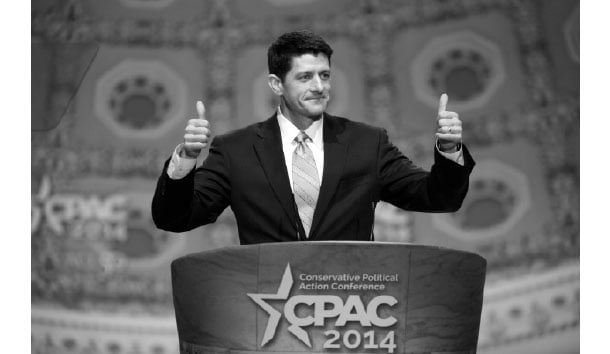It is fortunate for the Republicans that Democrats and liberals generally have a completely false impression of the meaning of the last two Congresses, though most of the GOP has an equally wrong one also. The left’s belief in the eventual arrival of a liberal utopia makes it easy prey to the erroneous conviction that, if only the Republican Party, composed of mean-spirited, retrograde, uneducated, and aging white males, could be destroyed either by its enemies or by suicidal factionalism, leftism would reign forever in the new postpolitical era, the end of history. Though the left has always been able to win elections and command governments, its ahistoricism guarantees its inability to think politically in the long run.
John Boehner’s resignation from Congress is viewed by liberals as further proof that the GOP is the party of gridlock, unable to govern either the country or itself; therefore (they imagine) its demise is at hand, and the Democrats will take all. Their mistake is to assume that “governing” is necessarily a positive activity, a matter of passing as much legislation as possible in as little time as possible. This is akin to supposing that “negativism” must always be inferior to “positivism.” Yet, to respond negatively to what is being widely acclaimed as positive very often is to act rightly rather than wrongly. A legislative body that refuses to pass or consider bad legislation is acting more positively—more actively—than the opposition that sponsored those bills. Had more governmental assemblies been do-nothing ones, the world would be a better place today.
In the event of its political suicide, the GOP’s ideas (good, bad, and nonexistent) would surely be adopted by its replacement party or parties, and live to fight another day. The GOP is as sacred to many of Lincoln’s political descendents as the Union was to him, but nowadays to fewer and fewer of them. In politics, there will always be an opposition, because politics is oppositional. And the traditional wisdom of millennia cannot be permanently eradicated from the human mind and soul. It is likely that the Republican Party in time will split formally between its conservative and liberal wings—an event the accession of Paul Ryan to Speaker of the House is likely to hasten rather than avert, since he is obviously serving subject to approval so far as the Freedom Caucus is concerned. The immigration issue alone could wreck his speakership, if Ryan should return to “comprehensive immigration reform” in 2017. Still, only a mind devoid of historical imagination could suppose that, post-Republicanism, the terms of political debate in America would be greatly changed—except, perhaps, to the confusion of liberals.

Leave a Reply